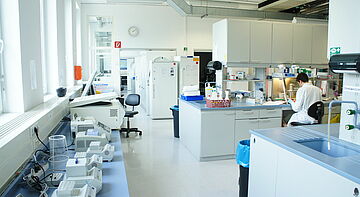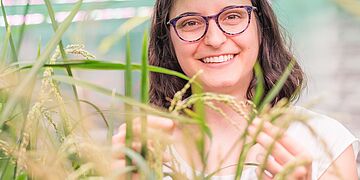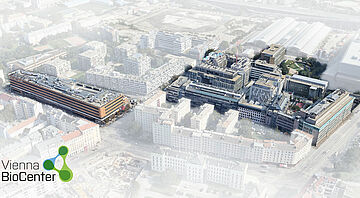The Proteomics Technology Hub, headed by Karl Mechtler and shared between three institutes at the Vienna BioCenter, aims to advance cutting-edge proteomics methods with a strong focus on single-cell proteomics. The team establishes and designs novel protocols to improve the sensitivity of protein identification, protein quantification, and cross-linking technology. In addition, they devise bioinformatics tools for data interpretation.
Postdoc Fränze Müller now received support from the Austrian Science Fund to conduct research into protein-protein interactions and protein complexes in the nematode C. elegans. The research project will be conducted in collaboration with Verena Jantsch-Plunger, group leader at the Max Perutz Labs.
Understanding protein interaction networks in their native environment is a complex task, as it involves analyzing proteins within specific cells, cell cycle stages, or subcellular locations. Over the years, scientists have developed innovative bioengineering techniques to label proteins using unnatural amino acids that can be covalently linked to fluorescent dyes. This enables researchers to directly visualize proteins within live cells, shedding light on their biological context.
Müller's research seeks to combine biolabeling, chemical crosslinking, and pull-down assays to develop protocols for investigating protein-protein interaction networks and protein complexes in C. elegans. She will utilize photoactivatable amino acids containing diazirine, which are incorporated into proteins during translation. UV irradiation of the nematodes will allow for precise timing of the crosslinking process, regardless of environmental conditions.
The innovative approach not only enables the capture of transient protein-protein interactions but also promises to increase the depth of crosslinking mass spectrometry within living organisms. This cutting-edge technique will yield a comprehensive picture of the protein-protein interaction network within the germline nuclei of C. elegans.
The FWF’s ESPRIT Program will support this project for the next three years and provide Fränze Müller with many networking and career development opportunities. Before joining the Proteomics Technology Hub, Müller completed her PhD at the Technical University of Berlin and worked as a postdoc at the University of Freiburg.




